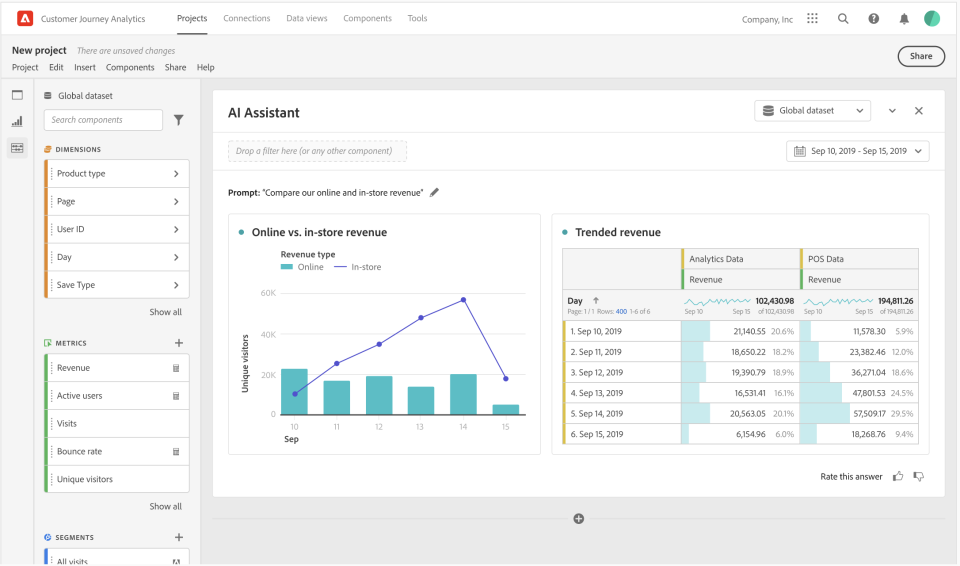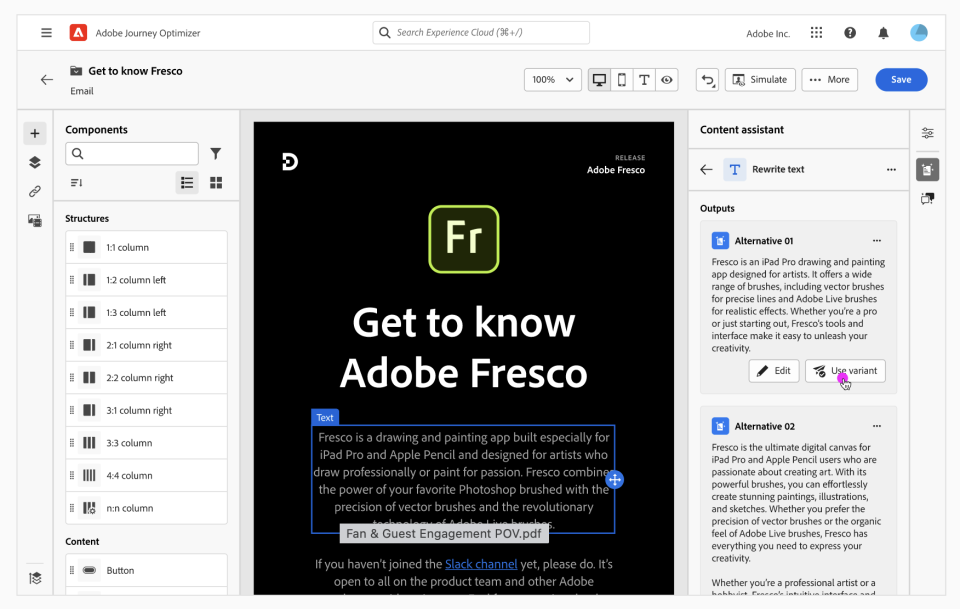Adobe brings Firefly to the enterprise
Adobe today announced that it is bringing its Firefly generative image generator to its enterprise customers and allowing them to customize the model with their own branded assets. In conjunction with this, the company is also bringing its Adobe Express design app (which you remember under its previous name of Adobe Spark) to enterprise users, who will be able to access Firefly from there as well.
"Enterprise leaders expect content demands will increase by five-fold over the next two years, making it imperative for them to drive efficiencies internally," said David Wadhwani, president, Digital Media Business at Adobe. "This new enterprise offering empowers users of any skill level to instantly turn ideas into content with Firefly, while tapping into the power of Express and Creative Cloud to quickly modify assets and deliver standout designs."
Today's announcement comes only two weeks after Adobe also integrated Firefly into Photoshop (where it has now been used more than 150 million times). Like all of the major tech companies, Adobe is moving quickly to integrate these new capabilities across its product portfolio.
The major advantage that Adobe has been banking on since the launch of Firefly is that it produces commercially safe images. It's training the model on images from its stock imagery marketplace (in addition to openly licensed images and public domain content), which means it has the rights to all of these images and doesn't have to scrape the web to gather them, with all of the copyright issues that entails. In return, though, the model is a bit more limited in the kind of images it can produce. In the enterprise context, though, being commercially safe will likely trump flexibility. Adobe is willing to bet on this and will indemnify businesses that use Firefly-generated images.
With this move, Firefly is now available in the standalone Firefly web app, Adobe Express and Creative Cloud.
Image Credits: Adobe
In addition to these Firefly announcements, Adobe also today launched a number of other generative AI-powered services as part of its Sensei GenAI platform. While Firefly focuses on images, Sensei GenAI is Adobe's branding for text and data-centric models that leverage multiple large language models, including OpenAI through Microsoft Azure and the Google-incubated FLAN-T5 model.
Maybe the most interesting of these use cases here is that Adobe Experience Manager and Adobe Journey Optimized now get a generative AI-based marketing copy generator (currently in beta). This will allow brands to edit, rephrase and summarize their marketing copy by selecting their preferred tone of voice, for example. Marketing copy -- and SEO content generation -- are one of the lowest-hanging fruits for generative text generators (maybe because readers' expectations here are already low?). One interesting twist here is that brands can tune the model with their own data to ensure that the automatically generated content remains on-brand.
Image Credits: Adobe
Users of Customer Journey Analytics will now also be able to use natural language queries to analyze their data and the service can now automatically caption charts and graphs. Meanwhile, a new chat tool will provide brands with "an automated way to interact with
prospects who engage online, addressing questions on products while assisting sales teams with custom responses and summarized interactions" that can be used inside of Marketo Engage.
Adobe says it's already working with "hundreds of brands," including Mattel, IBM and Dentsu, to help them adopt these AI-powered tools.

 Yahoo Finance
Yahoo Finance 

